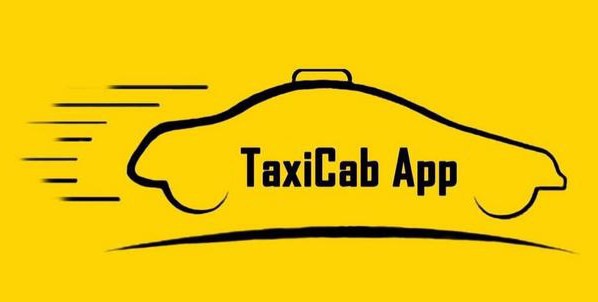Monitoring App Based Cab Aggregators
Towards A Brighter Future?
Even though app-based cab aggregators (“ABCAs”) entered the Indian market much later than traditional radio taxis, they have already started to eclipse the latter in terms of city coverage, fleet size, offerings and pricing.[1] These ABCAs follow a sharing economy model and claim to be technology platforms and not taxi operators, something not envisaged by the policies and regulations in place currently.[2] This post provides a timeline of the developments concerning the regulation of ABCAs in India thus far.
October 2015: The Ministry of Road Transport and Highways (“MoRTH”) issued an advisory for the licensing, compliance and liability of ABCAs in October 2015.[3]
August 2016: The Motor Vehicles (Amendment) Bill, 2016 (“MV Amendment Bill”), which makes certain provisions pertaining to ABCAs, was introduced in the Lok Sabha on 9th August, 2016. Thereafter, in pursuance of an order[4] of the High Court of Delhi dated 11th August 2016 (unconnected with the Bill), a committee was constituted under the chairmanship of Secretary, MoRTH (“MoRTH Committee”) to examine all relevant issues related to existing permits given to black/ yellow taxis, radio taxis and aggregators. The MoRTH Committee finalized its report in December, 2016. This report has been discussed in more detail, later in this article.
September 2016: The Management Development Institute (“MDI”), Gurgaon collaborated with Research Development International (“RDI”) and undertook an independent research project to study the major policy concerns relating to ABCAs from a regulatory perspective and came out with draft policy recommendations (“MDI Report”) on the same.[5] It was observed that the new business models being followed by these companies raised a number of concerns that could warrant regulation.[6] The MDI Report discusses issues that have come to the fore in light of the allegations of anti-competitive conduct against certain ABCAs[7] as well as class action suits[8] brought against the surge pricing model of pricing that some of them follow. Further, the question as to whether ABCAs should be held responsible for criminal conduct on part of their drivers has also been debated extensively.[9] The MDI Report provides ten key recommendations in relation with a number of such issues keeping in mind that regulation should never be so restrictive as to stifle innovation.
December 2016: The MoRTH Committee finalised its report (“MoRTH Committee Report”) in December, 2016.[10] The committee made a number of recommendations including that city taxies should be allowed to run on app-based platforms which may be validated for their integrity by an agency authorized by Ministry of Electronics and Information Technology. Measures to ensure that bigger aggregators do not undercut the traditional cabs were also suggested. The major focus of the policy was on ensuring safe, secure and affordable rides while helping reduce congestion and pollution in the cities.[11] These guidelines were recommendatory in nature and could help the states in framing detailed regulations.[12] Following this, some states like Karnataka, Maharashtra, Kerala, Tamil Nadu and Delhi responded to the requirement of bringing a regulatory framework for ABCAs.[13]
February 2017: After being introduced in the Lok Sabha, the MV Amendment Bill was reviewed by the Parliamentary Standing Committee on Transport, Tourism and Culture, which submitted its report on the matter in February 2017.[14]
April 2017: The MV Amendmement Bill was passed by the Lok Sabha on 10th April 2017.[15] It was then referred to a select committee of the Rajya Sabha.[16]
July 2018: Although the select committee recommended the passing of the Bill without changes[17], the MV Amendment Bill faced opposition from the Congress among others[18] in the Rajya Sabha on the grounds that it curtails powers of state governments, favours corporates,[19] and may lead to loss of revenue for the states,[20] when it was taken for discussion on July 23, 2018 and has not yet been passed.[21]
September 2018: A “high-powered” committee of the government of Delhi announces that it is likely to release a draft policy to regulate mobile application-based cab aggregators in the city of Delhi.[22] However, the policy is yet to be released as on date.
[This post has been authored by Srishti Ghoshal, a final year law student of Hidayatullah National Law University, Raipur, with inputs from Nehaa Chaudhari, Policy Lead and Tuhina Joshi, Associate, Ikigai Law]
[1] Jaiswal et al., Draft Policy Recommendations for Application Based Cab Aggregators (ABCA) in India, available at https://www.mdi.ac.in/pdf/research/ABCA_Report_MDI.pdf (Last accessed on October 16, 2018).
[2] Id.
[3] Id.
Chakraborty, S., Govt frames rules for cab aggregators like Ola, Uber, October 2015, available at https://www.livemint.com/Politics/hh9iHhNFi7aDMdVipC0dyK/Govt-drafts-rules-to-regulate-Uber-other- ridehailing-firms.html (Last accessed on October 16, 2018).
[4] W.P. No. 6000 of 2015 and 6668 of 2015 (High Court of Delhi).
[5] Supra note 1.
[6] Id.
[7] Gupta B., CCI orders probe against online cabs aggregator Ola over predatory pricing, May 2015, available at https://techcircle.vccircle.com/2015/05/07/cci-orders-probe-against-online-cabs-aggregator-ola-over-predatory-pricing/ (Last accessed on October 16, 2018).
[8] Sethi, A., Ola, Uber Face Class Action Suit: NGOs Seek Rs 9,239 Crore In Damages For Surge Pricing, September 2016, available at https://www.bloombergquint.com/business/ola-uber-face-class-action-suit-ngos-seek-rs-9239-crore-in-damages-for-surge-pricing (Last accessed on October 16, 2018).
[9] Times of India, Supreme Court to examine if Uber, Ola should be accountable for driver offences, October 2017, available at https://timesofindia.indiatimes.com/business/india-business/supreme-court-to-examine-if-uber-ola-should-be-accountable-for-driver-offences/articleshow/61049341.cms (Last accessed on October 16, 2018).
[10] Government of India, Ministry of Road Transport and Highways, Report of the Committee constituted to propose taxi policy guideline to promote urban mobility, December 2016, available at https://smartnet.niua.org/sites/default/files/resources/Taxi%20Policy%20Guidelines.pdf (Last accessed on October 16, 2018).
[11] Press Information Bureau, National Regulation for cab Aggregators, March 2017, available at http://pib.nic.in/newsite/PrintRelease.aspx?relid=159564 (Last accessed on October 16, 2018).
[12] Id.
[13] Bansal, V., India’s motor bill may overtake state regulations for cab aggregators like Ola, Uber, March, 2017, available at https://tech.economictimes.indiatimes.com/news/mobile/indias-motor-bill-may-overtake-state-regulations-for-cab-aggregators-like-ola-uber/57783584 (Last accessed on October 16, 2018).
[14] Parliament of India, Department-related Parliamentary Standing Committee on Transport, Tourism and Culture, Two Hundred Forty Third Report, the Motor Vehicles (Amendment) Bill, 2016 available at http://www.prsindia.org/uploads/media/Motor%20Vehicles,%202016/SCR%20Motor%20Vehicles%20Bill,%202016.pdf (Last accessed on October 16, 2018).
[15] Cheriyan G., Sharma M.S., Motor Vehicles Amendment Bill: Now or Never, August 2018, available at https://www.deccanherald.com/opinion/panorama/motor-vehicles-amendment-bill-686466.html (Last accessed on October 16, 2018).
[16] Sebastian M., Concerns Flagged Over Motor Vehicles Amendment Bill, July 2018, available at https://www.livelaw.in/concerns-flagged-over-motor-vehicles-amendment-bill/ (Last accessed on October 16, 2018).
[17] The Select Committee Report, the Motor Vehicles (Amendment) Bill, 2017, available at http://www.prsindia.org/uploads/media/Motor%20Vehicles,%202016/Select%20comm%20Report-%20Motor%20Vehicles%20Bill,%202017.pdf (Last accessed on October 22, 2018).
Prachee M., The Select Committee Report Summary, the Motor Vehicles (Amendment) Bill, 2017, available at http://www.prsindia.org/uploads/media/Motor%20Vehicles,%202016/select%20committee%20summary-%20Motor%20vehicle%202017.pdf (Last accessed on October 22, 2018).
[18] The Business Line, Elders look to block Motor Vehicles Bill, July 2018, available at https://www.thehindubusinessline.com/news/national/elders-look-to-block-motor-vehicles-bill/article24497309.ece (Last accessed on October 22, 2018).
[19] The Economic Times, Motor Vehicles (Amendment) Bill: 17 things about the move that will change the way India drives, July 2018, available at https://economictimes.indiatimes.com/industry/auto/auto-news/motor-vehicles-amendment-bill-17-things-about-the-move-that-will-change-the-way-india-drives/articleshow/65133192.cms (Last accessed on October 16, 2018).
[20] Supra note 18.
[21] Sebastian M., Concerns Flagged Over Motor Vehicles Amendment Bill, July 2018, available at https://www.livelaw.in/concerns-flagged-over-motor-vehicles-amendment-bill/ (Last accessed on October 16, 2018).
[22] Sweta G., Draft policy on app-based cabs in Delhi-NCR to be cleared in a week, September 2018, available at https://www.hindustantimes.com/delhi-news/draft-policy-on-app-based-cabs-in-delhi-ncr-to-be-cleared-in-a-week/story-VQ4UQY0DAfhPdiaeCArXWN.html (Last accessed on October 22, 2018).



